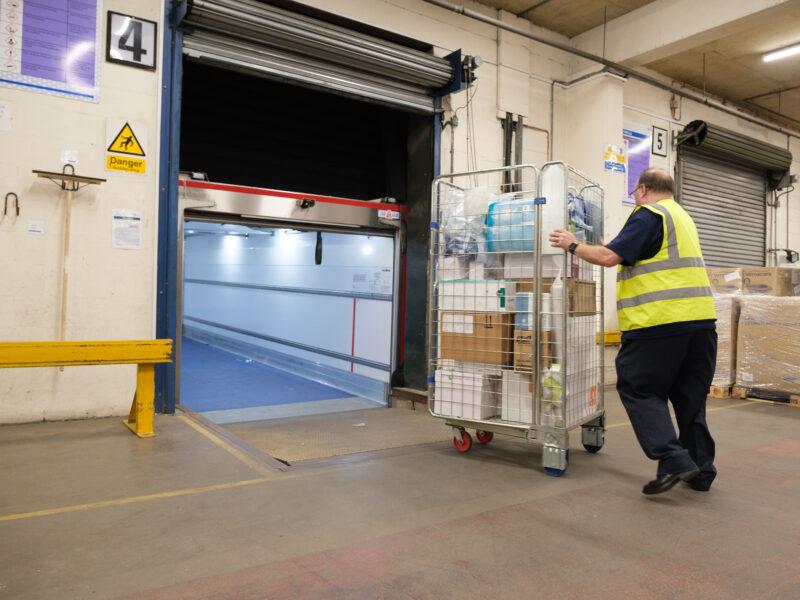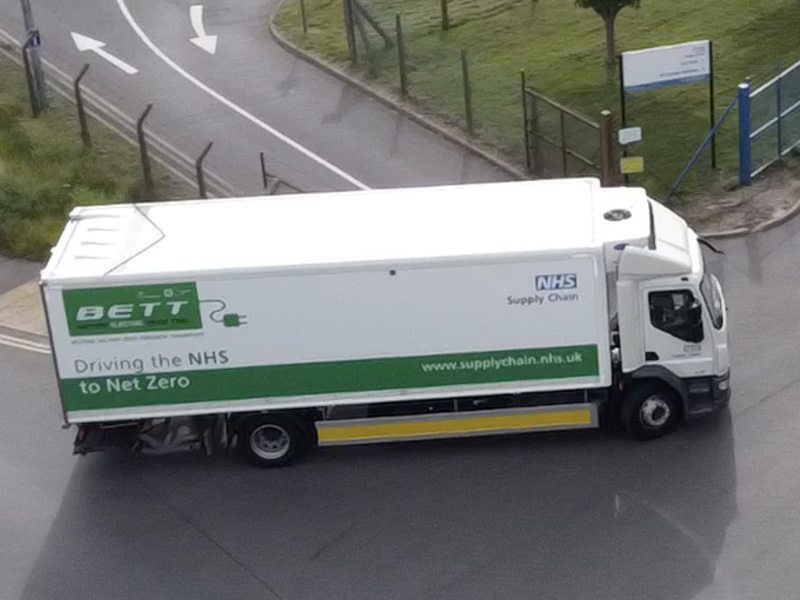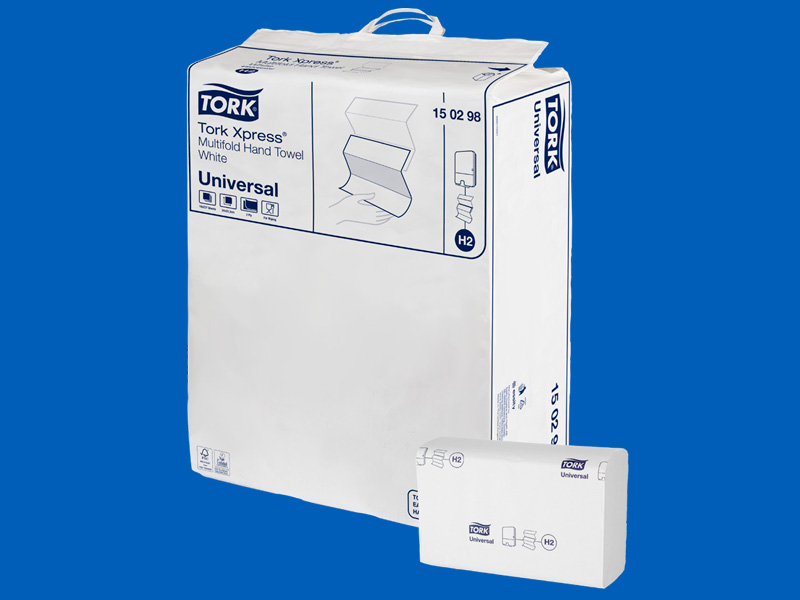
Our Latest Sustainability News
A Sustainable Healthcare Logistics Success Story
Learn more about a successful logistics project based on simple changes to ordering and delivery patterns, delivered in partnership with Hampshire Hospitals NHS Foundation Trust, Wessex Procurement Ltd and NHS Supply Chain’s Network Optimisation team.
Supplier Collaboration
A series of articles highlighting our efforts to work with key suppliers through the Supplier Relationship Management (SRM) programme.
Social Value and NHS Supply Chain
This report describes how we not only approach the regulatory requirements of social value in our procurement but how we as an organisation deliver social value, benefiting the communities and stakeholders that the NHS importantly serves.
Cutting Carbon and Waste: How Our Packaging Programme Is Supporting Greener Healthcare
Our Packaging Programme is delivering tangible environmental benefits by working closely with suppliers to optimise product ranges and transition to more sustainable packaging materials.
Log in for Exclusive Customer Content
Customers can now view additional content, including the most recent sustainability newsletters, recordings of our quarterly webinars, and more. Use your NHS Supply Chain login credentials to access these materials. Log in here
Our Sustainability Approach
Five strategic priority areas underpin our commitment to a greener future, each has a direct impact on our community and the environment. By aligning our efforts with these key pillars, we aim to support the NHS in achieving its net zero goals.
Watch this video from Heidi Barnard, Head of Sustainability at NHS Supply Chain to learn more about our approach to a greener future.
Meet The Team

Heidi Barnard
Head of
Sustainability

Rosy Bennett
Sustainability
Manager

Stephanie Gibney
Sustainability
Manager

Martin Toomey
Sustainability
Manager

Jade Gaffney
Sustainability
Advisor

Adam Curtis
Sustainability
Graduate
Frequently Asked Questions
General Questions:
We are committed to supporting the NHS in achieving Net Zero carbon emissions by 2045 for the emissions we influence (including those from our supply chain), and by 2040 for the emissions we directly control.
Over 71% of the NHS’s carbon footprint comes from the goods and services it buys. That’s why NHS Supply Chain is working closely with suppliers to reduce emissions and support the NHS’s journey toward becoming Net Zero. Sustainable procurement isn’t just good for the planet, it’s essential to delivering better health outcomes and long-term value for the NHS.
Ethical sourcing means ensuring that the products and services we procure are produced in a way that respects human rights, promotes fair labour practices, and minimises environmental harm. It’s a core part of our commitment to responsible procurement.
Drivers vary across NHS trusts, but common motivators include:
– Alignment with Green Plans.
– Regulatory requirements.
– Patient and staff wellbeing.
– Public accountability.
– Cost savings through efficiency and waste reduction.
Collaboration is essential to achieving our shared national net zero goals. We work closely with stakeholders (internally and externally) to ensure that sustainability is embedded in procurement decisions. Their insights help shape our approach, ensuring that environmental and ethical considerations are aligned with patient care and operational priorities.
We are constantly engaging with external stakeholders including NHS England, government bodies, suppliers and industry partners to help shape and respond to evolving policy, regulation and public expectations. This collaboration is key to driving meaningful change across the healthcare system and ensuring that our procurement practices support a more sustainable and socially responsible future.
We assess modern slavery risk at the framework level using NHS England’s methodology.
Based on the assessed risk level:
– Low: Modern Slavery Assessment Tool (MSAT) required.
– Medium: MSAT + further review.
– High: MSAT + further review + third-party audit.
All suppliers must complete the MSAT and follow appropriate due diligence processes. In addition, we review the modern slavery statements of suppliers who meet the reporting threshold under the Modern Slavery Act 2015 to ensure transparency and alignment with best practice.
We showcase the impacts of our sustainability initiatives through detailed case studies published on our external sustainability webpages. These include measurable outcomes such as carbon savings, waste reduction, and improved resource efficiency. By highlighting real-world examples and supplier collaborations, we help NHS organisations understand the tangible benefits of sustainable procurement.
Sustainability is a complex topic. It depends on what you are reporting on. Carbon footprint is an environmental measure. NHS Supply Chain reports its carbon footprint as part of Supply Chain Coordination Ltd (SCCL) financial disclosure available on Supply Chain Coordination Limited website. In 2025 NHS Supply Chain also published a social value report. See our Downloads section to view a NHS Supply Chain Social Value Report.
Customers:
Customers can explore sustainable product and service options in several key places:
– Sustainability Opportunities page – this dedicated section on our sustainability webpages highlights current opportunities aligned to NHS sustainability goals.
– Contract Launch Pages – new contracts often feature sustainability benefits and innovations.
See our Useful Links section to view Sustainability Opportunities page.
You can stay informed by subscribing to our Sustainability Newsletter, which shares the latest updates, insights and opportunities. We also regularly publish news on our website, host webinars, and take part in supplier engagement events. All designed to keep you connected to our progress and initiatives.
We recommend reaching out via email to: sustainability@supplychain.nhs.uk.
Identifying the right waste streams depends on the specific solution being considered and the local context of each trust. NHS trusts should work closely with their waste managers and estates or sustainability teams to assess current waste infrastructure and segregation practices.
To support this, trusts can refer to the following national guidance:
– HTM 07-01: Safe and Sustainable Management of Healthcare Waste.
– NHS Clinical Waste Strategy – outlines targets like the 20/20/60 segregation model and carbon reduction goals.
– Sustainable Healthcare Recycling Waste Management Framework – offers practical solutions and supplier support.
See our Useful Links section to view HTM 07-01: Safe and Sustainable Management of Healthcare Waste, NHS Clinical Waste Strategy, and Sustainable Healthcare Recycling Waste Management Framework.
These resources provide detailed guidance on waste classification, segregation, treatment options, and how trusts can align with NHS Net Zero goals.
Suppliers:
Our sustainability requirements are outlined in the Five Asks, a set of minimum expectations for suppliers working with NHS Supply Chain. These align with the NHS Net Zero Supplier Roadmap and support the NHS’s wider sustainability goals. The Five Asks cover areas such as carbon reduction, social value, and responsible sourcing, and are designed to help suppliers contribute meaningfully to a Greener NHS.
See our Useful Links section to find full details on our sustainability supplier webpage.
Suppliers are required to submit a CRP that aligns with Procurement Policy Note.
See our Useful Links section to view Procurement Policy Note here.
This must include emissions data for Scope 1, 2, and relevant Scope 3 categories.
The plan should be:
– Published on your website.
– Signed off at board level.
– Reviewed and updated annually.
All suppliers are required to complete the Evergreen Assessment; a tool developed by NHS England to evaluate and improve sustainability performance. It supports consistent reporting across the supply chain and helps identify areas for improvement. From April 2026, suppliers must meet Level 1 of the assessment as a minimum standard to continue doing business with NHS Supply Chain.
Suppliers are expected to achieve a minimum score of 41% on the MSAT, which reflects a baseline level of maturity in identifying and managing modern slavery risks. Beyond meeting this threshold, NHS Supply Chain encourages ongoing improvement.
Suppliers should:
– Review and update their MSAT responses at least annually.
– Reflect progress made and incorporate evolving best practices.
– Demonstrate a proactive approach to ethical sourcing and risk management.
This supports the NHS’s commitment to responsible procurement and protecting human rights across the supply chain.
Meeting these requirements is a minimum expectation for doing business with NHS Supply Chain. While we aim to support suppliers on their journey, through guidance, engagement, and resources non-compliance may affect your ability to bid for or retain contracts. We encourage suppliers to proactively engage with our Sustainability Team and standards, and seek continuous improvement to remain aligned with the NHS`s goals.




